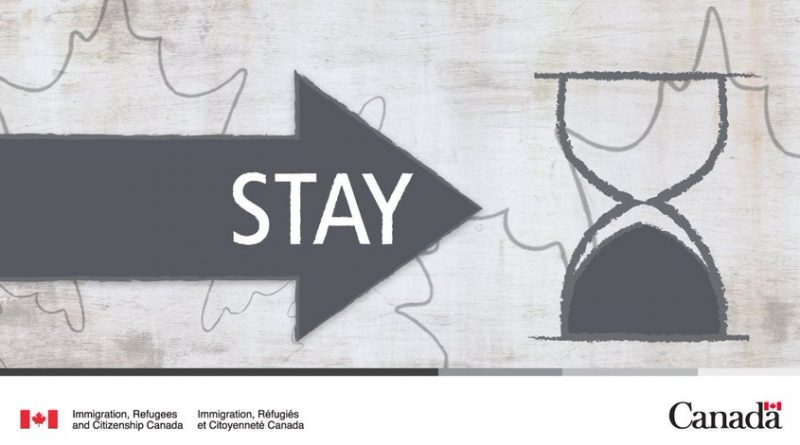Exercise Caution When Claiming Dual Intent on Study Permit Applications
Exercise Caution When Claiming Dual Intent on Study Permit Applications – International Students
Author:Will Tao,an Award-Winning Canadian Immigration and Refugee Lawyer, Writer
Dual intent is an important and increasing oft-used provision of the Immigration and Refugee Protection Act (“IRPA”) particularly for those applicants who straddle the pathway between temporary and permanent residence. I previously wrote about this concept more than four years ago with respect to a Federal Court case I was involved with called Jewell.
The Law, Section 22(2) of IRPA sets out:
Temporary resident
22 (1) A foreign national becomes a temporary resident if an officer is satisfied that the foreign national has applied for that status, has met the obligations set out in paragraph 20(1)(b), is not inadmissible and is not the subject of a declaration made under subsection 22.1(1).
Marginal note: Dual intent
(2) An intention by a foreign national to become a permanent resident does not preclude them from becoming a temporary resident if the officer is satisfied that they will leave Canada by the end of the period authorized for their stay.
Is Dual Intention Applicable to Study Permit Applications? Is it Over-relied Upon?
Dual intent seems naturally applicable in the context of a spouse who seeks a visa or temporary entry into Canada while a permanent residence application is in process or a foreign worker seeking to extend a temporary work permit while awaiting an Application for Permanent Residence based on an Express Entry Application or Provincial Nomination Program nomination.
Recently in reviewing study permit applications made by international students, including those prepared by prominent and experienced authorized representatives, I realized that dual intention was being heavily relied on. Indeed, Minister Hussen in several speeches given last year about international students, seemed to suggest that it was no inappropriate for students to enter Canada with an ambition to eventually become permanent residents.
However, in this piece, I want to put a cautionary tale on the application of dual intention when the future intention (permanent residence) is years away and argue that any submissions on study permit applications should focus instead on future immigration compliance and strengthened/remaining ties to the country of citizenship and or permanent residence (if not Canada). I also believe that much of our over-focus on dual intention can also be inadvertently created by our own pathwaying (as representatives) of the permanent residence process.
IRCC’s Program Delivery Instructions on Dual Intention
IRCC has published instructions (as of the date of this post, last modified in March 2019).
These instructions are quite detailed and worth a detailed read.
While the instructions set out it is not impermissible to have two intentions (one permanent and one temporary) and that it cannot be a standalone basis for refusal. The section titled ‘Example of a case for refusal‘ sheds important light on the concept, especially in the study permit concept.
The instructions state:
An applicant for a work or study permit who indicates that they have no intention of leaving Canada has demonstrated only a single intent – permanent residence. Their application would be refused, even if the applicant might subsequently qualify for the Canadian experience class (CEC) or the Provincial Nominee Program (PNP). This is because the applicant has shown that they would not respect the terms and conditions of temporary residence, should they not qualify for permanent residence.
Section R179 is balanced by the flexibility of subsection A22(2), which allows the officer to consider an applicant’s intent in relation to the particular circumstances of the application. For example: an applicant for a study permit who may qualify for the CEC in 3 years has a different set of circumstances from that of a provincial nominee whose application is near completion and who applies for a work permit, with the support of the province, due to an urgent need for their services. Please note that all applications should be assessed on their individual merits.
(emphasis added)
The very examples provided by IRCC about when refusing an applicant may be appropriate focus on the international study permit applicant who is not eligible for permanent residency at the time of their application. Furthermore, these instructions seem to suggest intent (where absent) can be imputed.
Therefore, even if the facts are presented in a balanced way – for example, half the family is in Canada vs. half the family is in the country of citizenship, or with the fact there may be a job opportunity available back home after graduation – there appears to be the needs for clear and explicit language that the Applicant will both be compliant with the terms and conditions of their temporary stay and can and will leave Canada at the end of their authorized stay. I have always interpreted leaving at the end of authorized stay as meaning as required under IRPA (i.e. if an extension is refused) rather than necessarily at the end of one’s study permit. A successful Post-Graduate Work Permit (PGWP) application, for example, would extend one’s authorized stay in Canada.





